 By Waziyatawin, Unsettling Ourselves
By Waziyatawin, Unsettling Ourselves
“Colonial relations do not stem from individual good will or actions; they exist before his arrival or his birth, and whether he accepts or rejects them matters little.” -Albert Memmi
Colonization v. Oppression
Many oppressed people around the world identify with the oppression experienced by colonized people. Often, if they live in a colonized society, the poor, oppressed, disenfranchised, and marginalized individuals or classes have difficulty identifying with the colonizers and thus seek to identify with the colonized. Because they live in a society in which colonization is ongoing, they begin to see themselves as colonized.
This discussion is designed to help differentiate between oppression and colonization, and to clearly demarcate colonization as a distinct historical, political, social, and economic relationship between the colonizer and the colonized. In our volume For Indigenous Eyes Only: A Decolonization Handbook (Santa Fe: School of Advanced Research Press, 2005), Michael Yellow Bird and I offered this definition:
Colonization refers to both the formal and informal methods (behaviors, ideologies, institutions, policies, and economies) that maintain the subjugation or exploitation of Indigenous Peoples, lands and resources.
In the context of the United States, everyone is part of this colonial society. By definition, however, Indigenous Peoples are the only people identifiable as colonized. Because every bit of land and every natural resource claimed by the United States was taken at Indigenous expense, anyone who occupies that land and benefits from our resources is experiencing colonial privilege. Every non-Indigenous person in the country continues to benefit from Indigenous loss. In Minnesota, for example, all Minnesotans continue to benefit from the genocide perpetrated against Dakota people and the ethnic cleansing of our people. Occupation of Dakota homeland, especially while the vast majority of Dakota people still live in exile, places all occupants in the colonizer class. No matter the extent of oppression faced by various settler groups, being a settler means belonging to the class of colonizers.
It may be helpful to develop your own definition of oppression and clearly distinguish how that definition differs from your understanding of colonization.
Read: Albert Memmi, The Colonizer and the Colonized
Albert Memmi offers one of the clearest explanations of the relationship between the colonizer and the colonized in his classic work that is still relevant in the 21st century colonial context. Understanding the desire of many colonizers to distinguish themselves from the brutality of colonization, Memmi imagines an intermediary category in the African colonial context that he calls the “colonial.” “A colonial,” he states, “is a European living in a colony but having no privileges, whose living conditions are not higher than those of a colonized person of equivalent economic and social status.” (10) Many oppressed or marginalized people would choose to embrace this identity because they envision the distinction between themselves and the colonial elites as both fundamental and immense. While the chasm between powerful and wealthy colonizers (such as corporate heads and politicians) and the poor, working-classes, for example, is certainly great, this still does not alter the relationship between the colonizer and the colonized. Thus, Memmi explains, “The colonial does not exist, because it is not up to the European in the colonies to remain a colonial, even if he had so intended. Whether he expressly wishes it or not, he is received as a privileged person by the institutions, customs and people.” (17) All colonizers, by continuing their occupation of another People’s homeland, remain colonizers, no matter their intent.
Memmi describes two kinds of colonizers: self-rejecting and self-accepting(read pages 19-76). Self- rejecting colonizers live in moral torment as they recognize the injustice of colonialism and do not want to participate in the subjugation of other human beings. They can return to their country of origin and relieve themselves of their guilt, or they can stay in the colony and continue to live a life fraught with contradictions. This is a difficult path. Memmi would even say this path is impossible to sustain. Drawing on his experience with leftist, self-rejecting colonizers, Memmi describes the point of divergence between colonizers and the colonized, “But now he [the leftist] discovers that there is no connection between the liberation of the colonized and the application of a left-wing program. And that, in fact, he is perhaps aiding the birth of a social order in which there is no room for a leftist as such, at least in the near future.” (34)
Memmi refers to the self-accepting colonizer as a colonialist. A colonialist is a “colonizer who agrees to be a colonizer.” About the colonialist Memmi tells us, “By making his position explicit, he seeks to legitimize colonization. This is a more logical attitude, materially more coherent than the tormented dance of the colonizer who refuses and continues to live in the colony.” (45) In the United States, nearly everyone has agreed to be a colonizer. Every day they engage in activities that continue to justify the theft of Indigenous lands, the killing and subjugation of Indigenous Peoples, and the ruthless exploitation of Indigenous resources. From birth, they begin teaching their children myths regarding the righteousness of the existing social order. That message is reinforced throughout their lives. It is hard work maintaining such lies, so whenever the colonized threaten to disrupt their myth-making, they are quickly silenced, suppressed, and further subjugated. The actions of the colonialist are predictable and consistent.
Non-Dakota allies are essentially choosing the path of a self-rejecting colonizer. If you support Dakota liberation, what are the implications of Dakota liberation for you? What is your vision of the future? If you are an anarchist, for example, what is your anarchist vision of the future? How might this differ from our vision of Dakota liberation? If we realize Dakota liberation, what will your role be? Many self-rejecting colonizers maintain fantasies, at least for a while, about their incorporation into Indigenous societies post-liberation. These fantasies need to be shed quickly. Most colonizers will not be incorporated into our cultures post-liberation. Can you accept this?
Disagreements with Memmi
While I agree with Memmi’s articulation of the relationship between the colonizer and the colonized, I also believe there is an important role that the self-rejecting colonizer can play in our struggle. Indeed, I think ally support of Dakota liberation will help facilitate the liberation of everyone from a perverse society. Not only do I believe that we need non-Dakota allies in our struggle, I also believe it is possible to have colonizer allies, including those who are willing to kill or die for our struggle.
Because of our numerical minority status, if we sought armed revolution by ourselves (without white allies), we would likely face complete extermination. We need dedicated allies who will stand on the front lines with us, or who are on the frontlines of solidarity actions to support us. Memmi would say these white allies do not exist. What do you think? What is your level of commitment?
Memmi argues that for decolonization to occur, the colonizers must leave. In most decolonization struggles, the colonized push the colonizers to go home. This is not the position I advocate, but certainly some Dakota people will express such sentiments. How will you respond to this?
- If you are a colonizer rejecting colonizer status, are you were willing to do whatever was necessary to assist in our liberation struggle, including killing, dying, or life-imprisonment
- Are you willing to work to challenge the status quo rather than maintain it?
- Are you willing to take on a lifetime of ambiguity, uncertainty, moral torment that is the life of a colonizer who rejects colonizer status?
- Are you willing to constantly engage in critical self-reflection and routinely have your white colonizer programming challenged?
About Cultural Appropriation
Cultural appropriation is an issue that we must engage with all potential non-Indigenous allies. When colonizers appropriate aspects of our culture, this is just another part of a long colonial history. Colonizing society has worked systematically, over the centuries, to strip our cultures from us. Most Dakota people today are prevented, still, from living as Dakota people within our homeland. All aspects of our lives are subject to colonial regulation. That is, we are not in control of caring for our land base, establishing our own economy, educating our children, governing our people, or practicing our own spirituality (we are still denied access to sacred sites, lands, and waters, that are central to our spiritual traditions). Consequently, we grieve the losses we have suffered and continue to suffer. Loss of culture is tied to feelings of shame and guilt (for not practicing our culture), as well as pain. Most of us do not have the privilege of learning or practicing Dakota ways of being because we are so busy trying to survive any way we can. Many of us have low expectations for our lives and for our future. Most of our communities were also heavily Christianized. Missionaries and government workers were so successful at eradicating our spirituality that throughout much of the 20th century, most of our ceremonies ceased to be practiced in Minnesota. At Upper Sioux, where I come from, we have had no traditional spiritual leadership since 1862. Even today, we do not have a spiritual leader in our community. We do not have a sundance. Our spirituality remains inaccessible to most of our community members because our people do not know where or how to begin practicing the traditions that were stripped from us. Further, many of our people feel unworthy to practice them. We are working hard to revive the spirituality, but we still have a long way to go.
What does it mean, then, to see white people practicing aspects of our culture? What does it mean when white colonizers practice aspects of our culture while that privilege is still denied to us, or remains inaccessible for a variety of reasons? It is deeply offensive to most of us. White people coming to our ceremonies do not carry the traumatic history that we do. Instead, they come with a sense of entitlement. They consider themselves cultural ambassadors and under the guise of creating peace between all peoples, they believe it is righteous to exploit our most sacred teachings. When Indigenous people object to their theft of our traditions, they dismiss those objections as hateful, angry, and un-spiritual. Yet, those individuals have appropriated our inheritance. They are practicing what has been denied our ancestors and what our children have yet to recover. It is just another assault on our spirit. This kind of violence through appropriation can extend to other cultural practices as well. For example, if colonizers are practicing sugar-bushing or wild-ricing within Dakota homeland while most of our people live in exile, they become just the latest wave of colonizers exploiting Indigenous resources at Indigenous expense. Dakota people will respond to such appropriation with anger, resentment, and hurt. This is not a good way to build solidarity with the Indigenous struggle.
Does this mean that others should never engage Indigenous ways of being? Not necessarily. If we are struggling for Indigenous liberation on Indigenous lands, all people are going to have to practice Indigenous ways of being in some form. We will all need to engage in sustainable living practices and Indigenous cultures, including Dakota culture, offer excellent models for all people. That does not mean former-colonizers can appropriate our spirituality and ceremonial life, but it will mean they need to embrace Indigenous values such as balance and reciprocity.
In the meantime, it is far more appropriate for colonizers to work to ensure that Dakota people are able to practice Dakota ways of being. If you believe sugar-bushing and wild-ricing are important, than help Dakota people recover lands so that we can engage that practice. Perhaps, we can eventually engage such activities together.
Points to Remember for Indigenous Solidarity Activists
- The movement for Indigenous liberation is a radical political struggle
- Being an ally does not mean signing up for Indigenous spirituality
- We need strong, solid individuals who are not floundering with their own spiritual struggles
- This is not a struggle for those people who believe it’s trendy to support Indigenous causes—we are in it for the long haul
- You can find Indigenous individuals who will support any position you want them to support—that is a direct result of the colonial experience
- Those indigenous individuals who encourage non-Indigenous participation in ceremonies are often (not always) those who are attempting to curry favor with white women, or white people for their own purposes
- Because this is a political struggle, it is essential to work in solidarity with critically minded and politically engaged Indigenous individuals
- Remember that decolonization is a process for both the colonizer and the colonized.
The Big Picture
In the end, we must all recognize that we are full of contradictions, colonizer and colonized alike. Even those of us who have a greater critical consciousness are tormented by the contradictions and compromises with which we must live. In the end, we all have considerable work to do.
Derrick Jensen and Aric McBay, in their latest collaboration, What We Leave Behind, ask us a fundamental question regarding our role in the well-being of the planet. They ask, “Will your legacy be a world who is healthier, stronger, more resilient, more diverse, than had you never lived? If not, then the world would have been better off without you. If not, then the world would have been better off had you never been born.” (191) If we wrestle with this question, we quickly come to the conclusion that the vast majority of us would not leave a positive legacy if we left the world today, whether we are colonizers or colonized. That means that we all have significant work to do to defend the planet from further destruction.
As Indigenous Peoples, for thousands of years we have been the first defenders of our homelands. We must resume that role. Those who presume to be our allies, must join us.


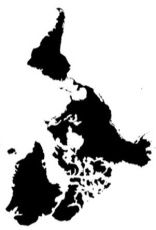

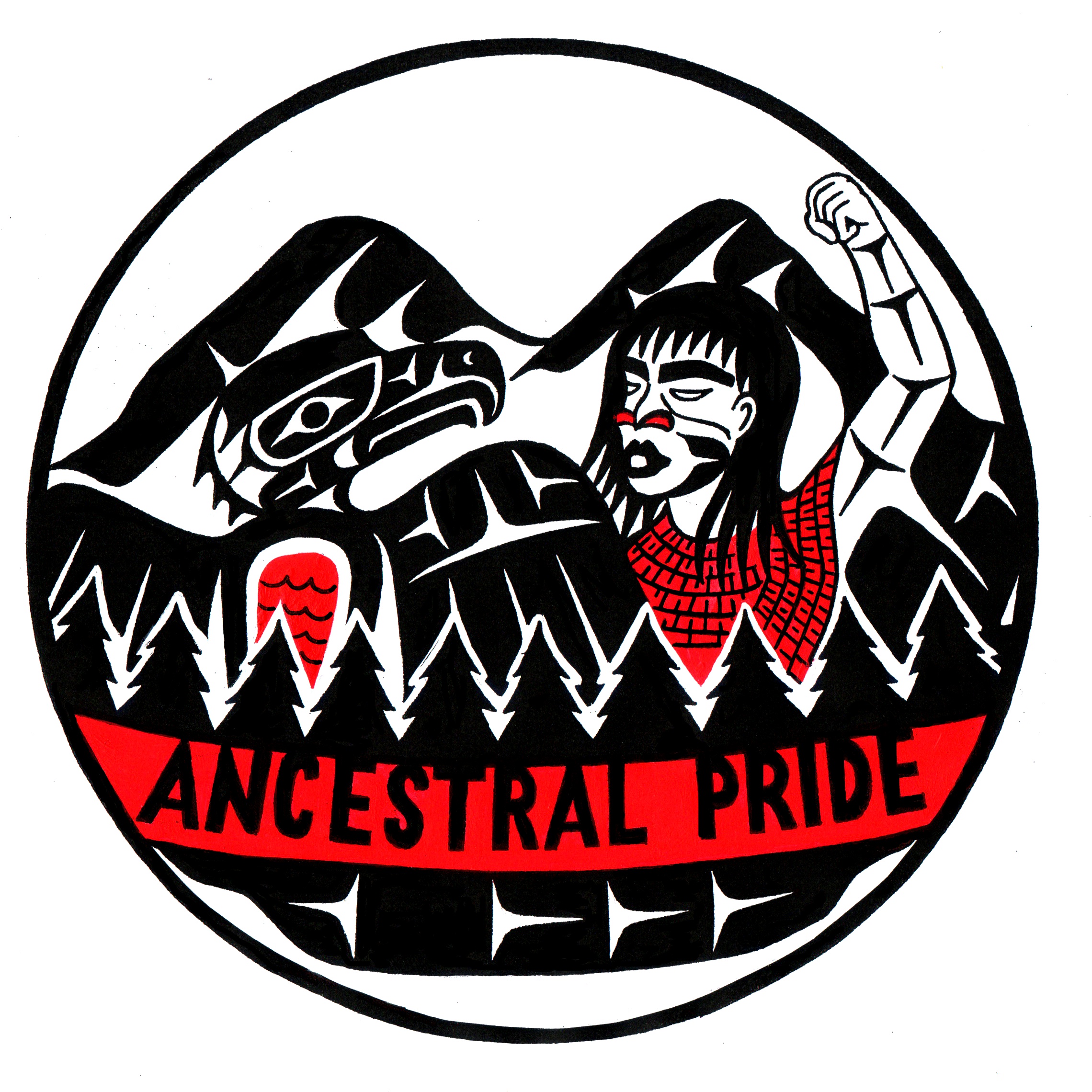

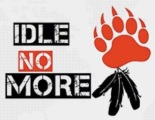



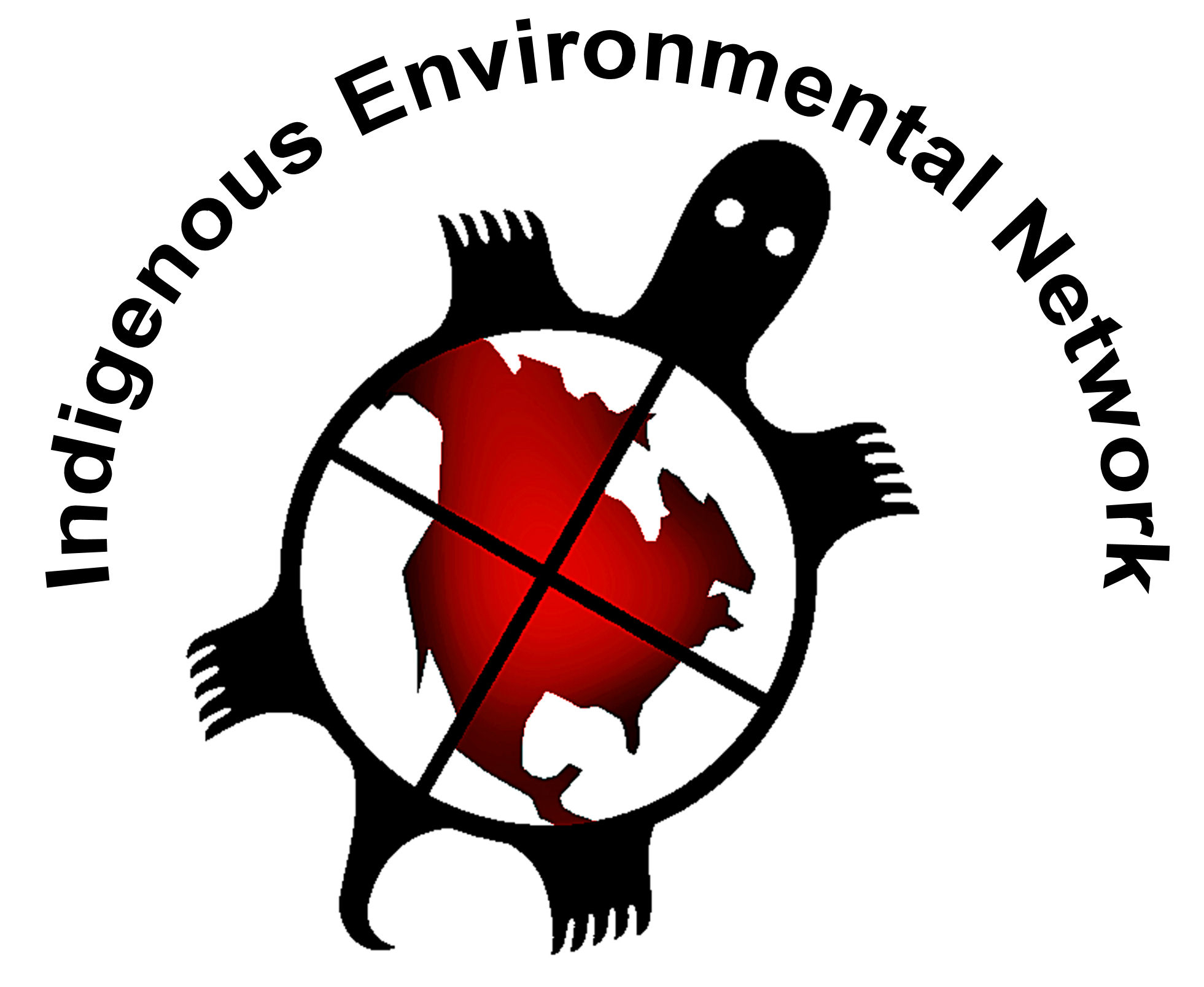


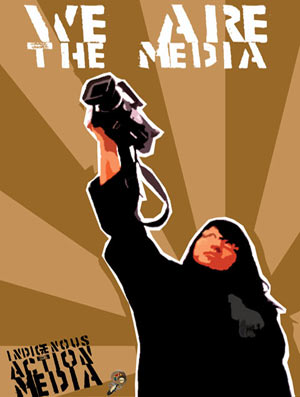





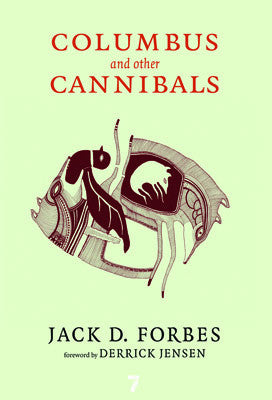
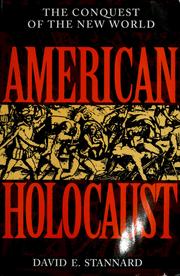






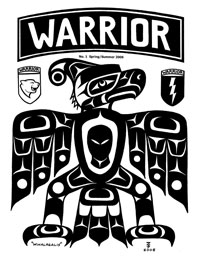


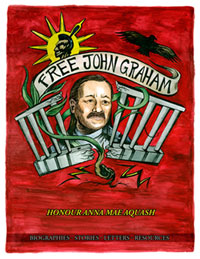



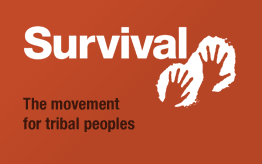


A friend suggested I post this here, rather than on their Facebook instance of your article. I apologize for speaking of you by name, but I’m just sitting down to dinner and don’t want to forget to post this!
I think this article has caused a strange reaction in me. I kind of like the idea of proposing there should be a right of return for every American to any one of the countries of their heritage. Oddly, when I researched it, Norway has recently been pleading the case for a right to return for the displaced Palestinians. I find this rather amusing, considering most of my ancestry is Norwegian, and I just happened to be searching for “Norway right of return.” There is a broad smile on my face at this moment!
But since I don’t believe it’s even remotely possible that I would be able to wedge myself back into the Norwegian state, I have to look for another solution, and I don’t like any of the options give to me as a colonizer, one way or the other.
Knowing the history of the native people of Wisconsin, there was a considerable amount of shifting of populaces between them. Particularly, when a number of members in one group were killed, they would kidnap someone from the offending group to replace those members. This includes kidnapping French children to replace warriors fallen by encounters or mishaps with the fur trappers. It sounds to me like I could pretty much present myself to a local tribe and suggest that they kidnap me and make me a full member.
When one thinks about this, it becomes clear that kidnapping replacements for one’s fallen members is a hell of a lot more peaceful than going out and killing as many in vengeance. It makes me wonder if what Waziyata Win is proposing really fits with her ancestral ways? It seems like some offenses become so large that the colonized pathways become so distorted that at some point we have to admit they have become unrecognizable.
It’s like one Indian said back in the late 1970’s: We sent our young to become lawyers so we could fight for our rights in the white man’s courts. Eventually we realized that we had sent so many of our children to learn the white man’s ways in order to help us preserve our culture, that we had lost an entire generation by thinking we would use the white man’s ways against him. Our children had all become white men, and we had lost what we’d set out to preserve.
I’m not pointing this out to suggest some contorted logic by which I may erase the truth. But, I am suggesting that where we find ourselves today may be a hell of a lot more complicated than the sides drawn in the initial contact, and it seems like it would be a lot more productive to kidnap each other by finding common causes rather then to suggest we fight to the point of slaughter in an attempt to push over 300 million people into the sea. Some things are just not going to happen.
And it’s no more likely that I’m going to be accepted back to Norway than it is that I’m going to suddenly imagine my hometown of Lake Geneva as if all my memories of growing up there were wrong and misdirected, and that my sense of belonging to that land is somehow not rightfully my own sense of connection to that land and its well being. My memories of growing up in South East Wisconsin are precious and personal and distinctly a part of who I am. Particularly important to me are my experiences with the forest and wild animals around and about our cottage, and my growing consciousness of the creeks and fields as I grew older and experienced the land as we kids wandered further from home. This isn’t something you may convince me involved a psychology of the colonizer, since I hadn’t even yet learned of Indians and merely thought they were people who lived in the west, where the cowboys once lived. I even recall being surprised in 2nd grade when I learned there had once been Indians in Wisconsin, too. But by then I had also discovered that artists like my mother were not accepted by the society we lived in, and that a single mother, as she had just become, was considered a lesser person for being a woman and for being unmarried.
Now, Waziyata is interested in separating this kind of lowly status of oppression from that of the status of the colonized. Perhaps that makes sense in some economies of thought, but it appears pretty clear to me as just another way of finding divisions between us and for claiming a status that clings to a religious hierarchy having its roots in the land, itself. Yet, one thing that makes me who I am, by the nature of having been a very observant child, is my understanding that I saw no authority wandering around in nature. That was wholly something I found in our education system and at church, and these things made no sense to me, having been raised to question everything. And, here I am questioning even Waziyata. Her points don’t actually sound like a world without status to me, at all. In fact, I’m pretty sure her entire series of points is meant to push me into a position that is more convenient to her than it is to me. Now, THAT I recognize, and it’s distinctly predatory.
I live in a mixed indigenous, settler community in Northern California. Waziyatawin’s writing his close to home for me. I sit here uncomfortable, perplexed, and hypocritical. I have worked to be an ally to the indigenous people where I live; to fight against dams, mining, logging, and industrial agriculture and to fight for land management and control by indigenous people. But it’s like Memmi said, being a self-rejecting colonizer is tormenting and/but there is no other just position to take. Enshook’s comments hit upon a lot of what I get when I try to talk to settlers (my friends and community members) about the need to unsettle, give up privilege, be real allies, etc. All of which highlight the privilege of settlers, at the expense of native people.
First, it would be too uncomfortable to go back to where our ancestors are from: Hardship and loss of privilege are involved, so take that option off the table. Entitlement runs deep. Obviously challenging your own entitlement is not pleasant. Neither is the history that got us settlers that entitlement. It’s privilege because you are choosing it, indigenous people who have lost their land can’t “wedge” themselves home because we are occupying it.
Second, the Avatar syndrome: “Knowing the history of the native people of Wisconsin” apparently better then Wazaiyatawin, who is questioned if what she “is proposing really fits with her ancestral ways?” speaks with authority about traditional ways to resolve the colonial dilemma for indigenous people. Colonizers historically have prided themselves on knowing more about other communities cultures then the people from that culture. As Andrea Smith writes, “to fully understand, to “know” Native people is the manner in which the dominant society gains a sense of mastery and control over them” (p.120). I think this relates to Enshook’s comments because of the threat native people asserting their rights upsets settlers, upsets the colonial order as Smith puts it.
This “knowing” leads next to another classic defense of settler privilege: it’s all just so different and confusing now, there is just no going back. And who does this benefit? Hum, everyone who has benefited from the losses indigenous people have suffered maybe? And the solution? We all just “kidnap each other by finding common causes.” Could Enshook have found a more insulting analogy? From kidnapping into slavery, kidnapping into missions, boarding school kidnappings, legal kidnapping of kids on the books in California during the foundation of the state, the list of indigenous kidnappings by settler society is too long to give justice to. I don’t claim to speak for indigenous people, but I doubt, knowing the history I know, Enshook is going to find an enthusiastic crowd for kidnapping. And I doubt kidnapping us settlers into “the tribe” will set things right for that “small matter of genocide” as Ward Churchill calls it.
Another argument is that it is unrealistic to de-colonize, it’s just the way it is, “some things are just not going to happen.” Acceptance of dominant society as omnipotently dominant for infinity is the foundational belief of this floundering empire and needs to be challenged. If things do not happen that seem unrealistic to the status quo, life could die out on this planet, I implore Enshook to try harder to reimaging the world in a more just way.
Next argument, Enshook feels connected to the land because of childhood experiences before knowing they were colonizing another peoples land. Just because you didn’t know doesn’t make it not true and your not knowing is the result of colonial educational institutions. Your positive experiences “innocently” trespassing and occupying another persons land does not make it your right to be there. Our personal experiences are tangled, twisted and tormented in this predatory system we benefit from, even if we are against it; we are all fucked up by it and it’s not easy or comfortable or going to be fixed in the short term. The best we can do as settlers is to work through our damaged selfhoods and fight for liberation and support resistance.
Lastly there is the argument using other oppressions to invalidate native claims, I felt Waziyatawin brilliantly addressed this and hope Enshook can re-read the article because to walk away from this reading accusing Waziyatawin of being “distinctly predatory” make me think the “strange reaction” Enshook felt at having privilege challenged was so unsettling they couldn’t handle it, but that’s exactly what needed to happen; settlers need to be unsettled!
What will my fate be if I fully embrace Waziyata’s definition and consequence of being a real ally? What about my family’s future? For me these are not abstracts, but grind on my mind and soul and keep me up at night because of my particular positioning. But to accept less of myself takes away my own humanity as well as the humanity of those who’s oppression (and land) my privilege rests upon?
I honestly do not feel the land belongs to colonizers or colonized. I do not believe it belongs to anyone. But, i have an experience of it that belongs to me, and therefore I have a sense that I belong to the land, for I would wish to preserve it, just as I would preserve a friend.
I am a white person who was born and raised on the landbase where I live (pacific NW), and I love this land and feel that this land is a part of me, despite the fact that I know that my ancestors aren’t part of this land. I definitely feel the pain of being a “self-rejecting colonizer” – not in that I hate myself or devalue my humanness – but in the sense that having rejected the wetiko culture of my more recent ancestors (and in fact declaring that culture to be my enemy, and dedicating myself to its eradication), I am essentially bereft of a culture. I am “of no people”. I still have family in the colonizer culture, and still live within it and participate in it to a certain extent. Although part of my lifelong vision is relearning how to live in harmony with the land, as humans are meant to, I know that withdrawal from the dominant society is only a partial solution, and not even the best one (it only helps oneself personally, but does very little to oppose the system itself). Living within a culture does not automatically make one a collaborator – the members of every underground resistance in history did their best to fit in (on the surface), for obvious reasons. But at the same time, being part of a resistance does not do anything to eradicate colonizer privilege, and that must be continuously recognized and addressed.
Unlike historical resistances however, the “self-rejecting colonizers” who stand in opposition to the dominant culture are opposing not just a regime, but an entire culture – its worldview and way of life. Thus having no culture to claim allegiance to, we find ourselves facing the unique historical task of building a new culture for ourselves – or at least the foundations of one, which future generations can build upon. Of course, culturally appropriating others’ cultures is NOT an option, for all the reasons cited above. But I can see why so many do culturally appropriate, because without understanding their colonizer privilege, it can be hard to see the difference between looking to native cultures for guidance in relearning the old ways (our common human birthright), and just copying others’ cultural practices (although just listening to what the indigenous people say makes it pretty clear). The former is necessary, because in many cases such guidance from our own ancestral cultures no longer exists, after thousands of years of agriculture, conquest, and civilization (the Indo-Europeans culturally genocided most of the native cultures of Europe around 6000 years ago).
After saying all this, I hope it is clear why going back to the land of my ancestors is not an option for me. Not only have I rejected the culture of my ancestors, and would thus feel even more culturally uprooted and isolated that I do now (considering that my immediate family is here, and the colonizer culture here is at least familiar to me and I speak its language). But even more importantly, leaving the land that I was birthed and raised on, that I know intimately and love with all my heart, to live on a landbase that I don’t know & love, that my body isn’t adapted for, makes no sense for me or for any animal. There ARE ways for me to live on this land, with respect for those who the land rightfully belongs to, and with respect and care for the land itself, without requiring me to deny the fundamental connection to the land that is the birthright of any animal. I understand that this would require me to (ultimately) give up any claims to “private property”, and to potentially move to another location if needed – but this landbase is vast, and I’m sure there are many places where I could live as an ally to the land and its people without being in anyone’s way. I think the key is HOW I would be living on the land (destructively? or harmoniously?), and how well I respect those with first claim to the land.
I’m sure I will be grappling with these questions for the rest of my life, and (hopefully) they will become even more relevant as the colonizer system collapses.
Jessica–I love your analysis. You and I (as the inheritor of colonialists) are in a no-win situation. We are occupying stolen land.My only solace is that abrupt climate change will soon put an end to all our agonizings.
Elsewhere, someone asked:
“What if you are a non-Native person who has lived amongst First Nations folks your whole life, who has been deeply influenced and to a large extent raised on the culture and spirituality, and you are invited by them to take part in ceremonies? Should you refuse? Does that obligate you to embrace values and worldviews which are quite contrary to those you hold dear on the basis of your ancestry?”
My reply:
If you dig deep enough, past the colonization of your ancestors by the dominant culture (regardless of your ancestry), the worldviews of earth-based cultures around the world aren’t that different, save specific cultural practices, traditions, narratives, etc.
But as someone of mixed heritage who has been raised in close proximity to indigenous culture and as someone who has been invited to participate in indigenous cultural practices, i think it’s perfectly appropriate to participate on any level into which you are explicitly invited. But i for one have been able to participate on that level while at the same time doing it from an identity rooted in a sense of being the descendent of my ancestors (which again, are very mixed). i participate as a guest and honor the ways of those who have invited me while at the same time honoring the ways of my own ancestors. but this is only because i’ve spent many years uncovering my ancestral narrative and reclaiming my ancestral identity. for most people this is not the case. but with a little effort, it can be.
some of our narratives, however, are so lost that we cannot uncover them. this is when we must rebuild and recreate. identities that emerge from a rootedness in and intimacy with one’s land base, even as displaced people no longer in our ancestral homelands, are genuine and appropriate. those that are appropriated from others rather than organically emerging from the land base are illegitimate and a continuance of colonialism and genocide. (In fact, the ancestral life ways of our ancestors are often rendered *inappropriate* here and now because they emerged in a specific context rooted in another time and place.)
anyways, i can tell you from experience that it’s much more empowering and powerful to participate when invited into the cultures and traditions of others (even as a settler participating in a colonized culture, which is really what this is all about) when you’re doing so from a position of reclaimed narrative and understood ancestral descendent identity, rather than as a rootless person without an understanding of the story of their ancestors and how they themselves came to be who and where they are.
shades of vine deloria & winona laduke and she even used my favorite word RECIPROCITY…the sad fact is— what % of the colonizers or the generations of their spawn of mass consumptive throw away society of instant gratification with their empty souless lives, even understand the realities of the colonization of our peoples lives???” liberation, subjugation, life fraught with contradictions: rings like a song—the hypocrisey of Christianized spirituality can not change your DNA ,your spiritual leadership is within you— just ask the ancestors for guidance…and when the focus is on the resource rich Alaska keep asking “how could the russians sale what they did not own”. lets not forget the Indigenous Peoples of the third world and the non benifets of colonization and it’s continued exploitation today…RECLAIM DECOLONIZE
wonderful blog! I am here to learn…www.splitfeathers.blogspot.com
Very interesting read and thought process as a result. Yet the author doesn’t seem to take into account that over 90 % of indigenous people in north america are mixed, either inter-tribally, inter-racially or both. So, by the author’s definition, the journey of the mixed-race indigenous person is a journey of both colonized and colonizer and yet it is the journey of the vast majority of indigenous north americans, as most of us are mixed. And by this mode of inquiry/thinking, would those intertribally mixed be sanctioned to speak for all of their tribes or just the one or ones for which the individual enjoys political membership? Would indigenous people of one tribe be sanctioned to speak for the rights of another tribe? If so, only the Lenape would be sanctioned to speak about the occupation of Wall Street.
I would gladly go back to England if that were possible. In fact, I lived there for several years and only came back to America against my will.
The fact is, though my genetic ancestors did not evolve in a North American landbase, this *is* my land, also. Like many Americans of European descent, I also have Native American ancestors. And, like some other commenters above, I feel intimately connected to the place where I was born, grew up, learned, loved, and live. I know the plants, animals, seasons, people. It is my home.
Of course this insane nation, this culture of death, was founded on genocide, violence, and slavery. But what are the 300 million of us non-Native-American U.S. citizens supposed to do? We can’t all go back to England (or Germany, or Ireland, or Nigeria, or Italy, or China, or Korea…). Not only are those countries also full to the point of bursting, and rapidly approaching ecological overshoot, but there are laws in place that will physically prevent us from returning there. Are we all to commit suicide? Are we to feel so guilty because of the rapacious expansion of our ancestors, something over which we had no say and no control (and which we also hate), that we assume our lives to have no value? And what about those of mixed ancestry? Where is “their” native homeland? Are we sub-human? This type of genetic essentialism seems to be rather dangerous, and counterproductive. And if anyone should understand the dangers of genetic essentialism, and using biology as a determinant of rights or human status, it is Native Americans.
I *wish* it were as simple as just going back to Europe. I’d do it in a heartbeat. Though Europe also suffers from the diseased culture of death (which ultimately seems to have been imported from Italy, and before that from Greece, and before that from the Fertile Crescent, and before that from Sumeria), it is, in my recent experience, a much more humane and enjoyable society. And though I do feel deeply, spiritually connected to my specific, American landbase, I also feel connected to the land of my more distant ancestors, perhaps because I am descending almost solely from people of British ancestry.
However, I would also like to note, as a Native American ally and a person who hates the dominant, colonizer culture, that WE, TOO, ARE COLONIZED. If Native Americans such as Waziyatawin consider all of us non-Native Americans colonizers, then do I not also have the right to demand recognition for the fact that my own indigenous British culture was also stolen? Not only do I most definitely NOT have a “right of return” to my “homeland,” but it is also occupied, and has been since 43 C.E.
It makes more sense to me, therefore, to make THIS land my “homeland,” my landbase, my mother. THIS is where I was born and have lived (as have the last twenty or so generations of my ancestors). THIS is the land in which I can name all the birds and flowers. THIS is the land I feel obligated to protect and preserve. THESE beings, plants, animals, and people alike, are my community. To think that can just be swept away, because my ancestors arrived here in ships four centuries ago, rather than 4,000 centuries ago, strikes me as just another form of the colonialist impulse.
Waziyatawin is not happy that her people’s land was stolen. I concur. Likewise, I am not happy that my people’s land was stolen. Both of us hate the dominant culture of death, with its hatred of life and the planet, and its insatiable thirst to exploit to the point of collapse. Waziyatawin’s culture will never be fully recoverable, as she admits in this article. My pre-conquest culture is even more obscured by centuries of domination and erasure. Shouldn’t those of us who share a commitment to the indigenous struggle for autonomy and the worldwide fight for a truly sustainable culture see each other as more than allies? Aren’t we, ultimately, one people?
Frankly, Waziyatawin’s definition of “colonizers” strikes me as racist. As the 99%/Occupy movement is showing, the vast majority of people worldwide are in fact colonized, enslaved, oppressed. Of course there are varying degrees; the majority of the Occupy Wall Street protesters are globally among the 1%, being mostly educated, fell fed Americans. But that’s not what’s important and striking and inspiring about their action. The important thing is that they have achieved a RECOGNITION of OTHER oppressed people in their midst. They have realized that none of us are alone in our alienation. They have realized that we are the majority (the vast, overwhelming majority). The have taken off their blinders and seen the protesters in Egypt and Tunisia and Syria and London and Los Angeles. And they have recognized themselves.
Colonization refers to both the formal and informal methods (behaviors, ideologies, institutions, policies, and economies) that maintain the subjugation or exploitation of Indigenous Peoples, lands and resources.
Doesn’t this conflict with lets say “everything” ?
A exists.
B exists.
A and B live on C.
C is interconnected “para siempre”
B calls this interconnectedness “relationships”
Than A and B have a connected relationship through C.
A and B actions will always be connected.
Therefor, B actions effect A and each other and one another.
And “Colonial relations do not stem from individual good will or actions; they exist before his arrival or his birth, and whether he accepts or rejects them matters little.” -Albert Memmi
If A exists “para siempre” and is viewed as “colonization” than so to does B maintain this relationship throught time and space. There would be no time,space,place, etc where A and B are not connected. A maintaince of B is reciprocal if Memmi’s proposition to hold true. Therefor, there would never be a time where B was not connected to A. To state that such a time,space,place, etc would be to deny Memmi proposition false. As well, indigenous philosophies as false.
Just wondering where do black people fit into this? This is not our land however our land, language and culture was stolen from us. Blacks have never been free of US terrorism. Idk if I agree with us being lumped in to the same category of white people as colonizers or settlers. I would be interested in hearing other peoples perspectives on this so I can better understand.
*colonizers and settlers
I think a simple way to understand that one, Jess, is the category of forcibly displaced peoples. Some of my own Gaelic ancestors were brought over the sea by force, as slaves and indentured servants. Truly, the horrors visited upon those stolen from the “African” continent were far greater, but the reality is that forcibly displaced people of non-African origins were in fact quite common, particularly in the earliest colonial days before the import of slaves from Africa became a global trade network extending into the “New World”. Many “white” people are taught to identify with the white supremacist power structures of this country, including their historical origins, and thus grow up thinking they must necessarily be the descendents of slave masters or some shit, when the reality is usually much more complicated than that.
In this context, non-Indigenous people of the united states would be colonizers regardless of their status in the united states. So in one way African Americans, Puerto Ricans and Indigenous people in the United States are a colonized peoples but in the context of this proposal which seeks a new landscape devoid of colonizers, only Indigenous people and rightly so, have been framed as colonized.
Reblogged this on Autonomous Action Radio.
I do have to ask, what about those of us who are mixed? Particularly non-federally recognised (either state status or non-status) persons that identify as native? That actively participate in their respective cultures despite not having a federally recognised tribal affiliation? Do we consider this person a colonizer too, to be excluded when there’s liberation? Does it depend?
Pingback: i am a settler. i live in a colony. | Míle Gaiscíoch
I was loving this article as an educational and solvent overview of a topic I am new to. You had me up until this:
“If we realize Dakota liberation, what will your role be? Many self-rejecting colonizers maintain fantasies, at least for a while, about their incorporation into Indigenous societies post-liberation. These fantasies need to be shed quickly. Most colonizers will not be incorporated into our cultures post-liberation. Can you accept this?”
So, tell me your vision of a post-liberation world. Do all the supposed colonizers just get kicked out? What if they are married in? And where are they supposed to go? This sounds just like Israel-Palestine writ future-time.
Significant contribution to the discussion. Wadoh.
Reblogged this on ANTIFAFOREVER and commented:
The Indigenous voice is not lost! We will make sure of that.
Pingback: Education Resources from TEN’s Decolonize Consciousness Group | The Evolver Network
Pingback: ABOUT THE COLONIZER AND THE COLONIZED | danielmabsout
Pingback: Why Racial Justice Work Needs to Address Settler Colonialism and Native Rights — Everyday Feminism